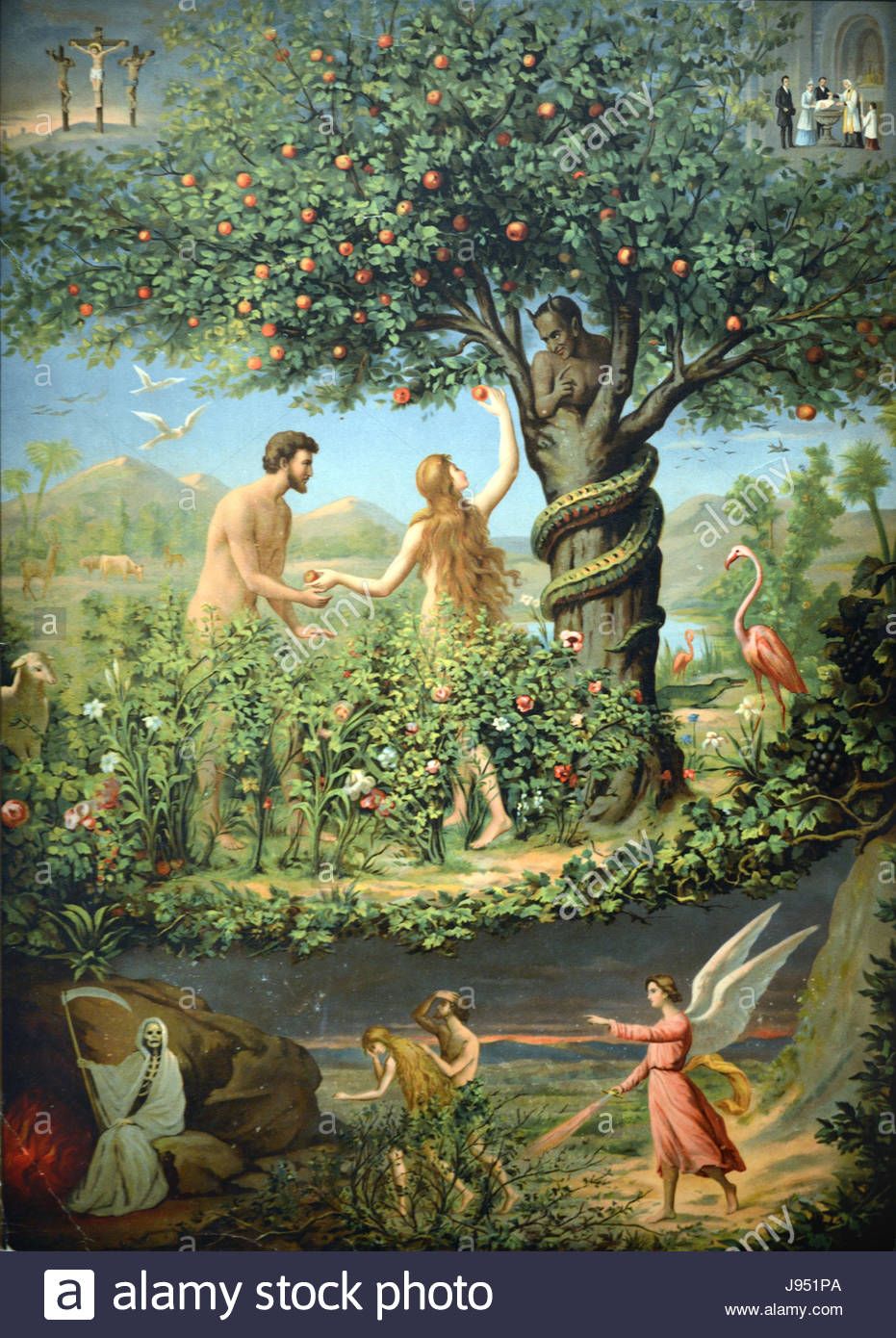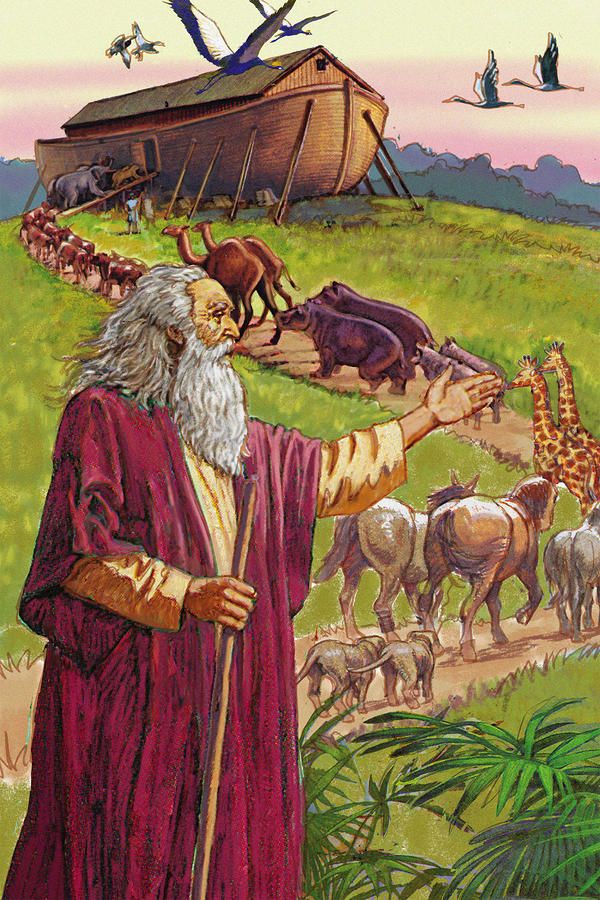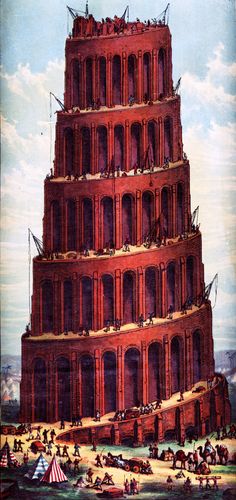בְּרֵאשִׁית
Genesis
The Hebrew name for the Book of Genesis is the first word in the book namely, "bereishiet" which literally means, "In a beginning.




Introduction
The Book of Genesis, the first book of the Hebrew Bible and the Christian Old Testament, is an account of the creation of the world, the early history of humanity, Israel's ancestors, and the origins of the Jewish people. It is divisible into two parts, the primeval history (chpt 1–11) and the ancestral history (chpt 12–50).
The primeval history sets out the author's concepts of the nature of the deity and of humankind's relationship with its maker: God creates a world which is good and fit for mankind, but when man corrupts it with sin God decides to destroy his creation, sparing only the righteous Noah and his family to reestablish the relationship between man and God.
The ancestral history (chapters 12–50) tells of the prehistory of Israel, God's chosen people.
Origins
For much of the 20th century most scholars agreed that the five books of the Pentateuch came from four sources, the Yahwist, the Elohist, the Deuteronomist and the Priestly source, each telling the same basic story, and joined together by various editors.
Date
Scholars in the first half of the 20th century concluded that the Yahwist is a product of the monarchic period, specifically at the court of Solomon, 10th century BC, and the Priestly work in the middle of the 5th century BC (with claims that the author is Ezra), but more recent thinking is that the Yahwist is from either just before or during the Babylonian exile of the 6th century BC, and the Priestly final edition was made late in the Exilic period or soon after.
The rest of this comprehensive Wikipedia article on the book can be read here.
Genesis 1:1a
The meaning of the first word in the Hebrew Bible (Christian Old Testament) has been debated for centuries. For a short video explaining the problem in simple terms, please click here.
Here are two ways how the different opinions on Gen 1:1-2 have been summarized.
A
The ambiguity of the Hebrew grammar in this verse gives rise to two alternative translations:
The first implying that God's first act of creation [out of nothing] was heaven and earth.This is often referred to as "creation ex nihilo" -- the concept that God created the Earth and the rest of the universe out of nothing. This is the historical Christian interpretation of the first Genesis creation story and is grounded on St. Thomas Aquinas' "Summa Theologiae," and on other early Christian writings.
The second is that 'heaven and earth' already existed in a 'formless and void' state, to which God brings form and order:This is called "creatio ex materia." God is seen as having formed the universe out of pre-existing material, perhaps by bringing order out of chaos.Augustine appears to have adopted this position.
B
The meaning of Genesis 1:1-3 has been debated over the centuries.
The vast majority of ancient commentators (both Jewish and Christian) have understood Genesis 1:1 as the first acts of creation which took place on the 1st day.This view is referred to by scholars of varying positions as “the traditional translation and interpretation." Martin Luther, for example, subscribed to this view.
Two other views have become popular recently, although one of these has roots that go back almost 1000 years. These positions view the Bible as teaching matter as pre-existent to the creation account in Genesis and they are used to argue that the Bible doesn't rule out a “big bang” billions of years ago being the start of the universe.
a. The first divergent view is that Genesis 1:1 is a dependent clause, whose main clause starts ineither verse 2 or verse 3. In this view Genesis 1:2 states what was there before God began to create, and in Genesis 1:3 God begins creating. Solomon ben Isaac (Rashi) who lived from 1040-1106 A.D.gave us the earliest historical occurrence of this interpretation.
b. The second divergent view, the gap view (commonly known as the summary-statement interpretation) argues that Genesis 1:1 is a title or prologue. This position argues that there is a semantic discontinuity,a gap, between verse 1 and verse 2. Proponents of gap interpretation view the narrative as beginning in Genesis 1:2 and describing a world that is the opposite of created. One of the most well known proponents of this view is Bruce Waltke.
An extract from BHFA Volume 5
The first word in the Hebrew Bible is
בְּרֵאשִׁית
This word has a footnote attached to it. The two Greek forms in the footnote show no deviation from the MT, but the Samaritan form is "in the beginning", as opposed to the "in a beginning" of the MT and the LXX.
There is no definite article in the MT. Some scholars argue that the shewa indicates that the word is in a construct chain and could imply "In the beginning of the story."
Remembering that the original documents consisted of consonants only, we could question the vowels that the Masoretes added to the second word in the vers. They took the three consonants to be a qal perfect verb 3ms bara then meaning, "he created." It has been suggested that the consonants could also be given different vowels and so change it into a qal infinitive form bero' meaning, "to create." It then opens the possibility to translate the phrase as, "When God began to create…" This would make even more sense if we kept in mind that the punctuation mark (a soph pasuq) does not necessarily mean a full stop or period.
Links to further reading:

AN EXTRACT FROM BHFA VOLUME 5
Genesis 2:19a
אֱלֹהִים (God) יְהוָה (Yahweh) וַיִּצֶר (and he formed)
KJB And …. the LORD God formed
NASB And …. the LORD God formed
ESV Now …. the LORD God had formed
NIV Now the LORD God had formed
וַיִּצֶר
This is a waw conversive + qal impf. 3ms of the verb יָצַר meaning, "to form, to fashion" as a potter or creator would. This verb occurs 63 times in the Hebrew Bible.
This form of the verb is extremely common and should be translated as, "And he formed."
The NIV and ESV have changed the transalation for it to indicate that the animals were created after the creation of man in 2:7. This would then prevent this verse from contradicting the order of creation in Gen 1:20-25.
There is no reason for us to attempt to harmonize the two creation narratives. We should rather recognize that they present different theological perspectives of what God did when he created the world.
Creation vs Evolution
Read an extract from a previous publication here, outlining what I believe.
Extracts from BHFA Volume 5
For a discussion of the Hebrew word יוֹנָה refer to Jonah here.
וַיְשַׁלַּח אֶת־ הַיּוֹנָה
the dove (marker) And he sent
Genesis 8:8
Genesis 1-11
I believe
It is extremely dangerous to draw specific conclusions from the narratives found in Gen 1–11.But in the case of the 'Great Flood' we have some confirmations from extra-biblical sources.
The so-called 'flood myths' in many cultures suggest that something happened, capturing the imagination of ancient man. In the recent past there have been attempts to scientifically motivate the possibility of an earth-covering flood. I, for one, am not convinced, yet.
However, I firmly believe that some natural phenomena did occur, but where, when and on what scale, I am not prepared to speculate. That somebody, because of divine intervention, believed it necessary to take evasive action, I am prepared to accept, even if this included humans taking care of other living creatures. The only indication to the extent of this incident becomes clear if we keep in mind that the concept had been transferred orally for many generations until eventually being recorded.
The author of Genesis, for example, deemed it necessary to describe the unfolding of this particular drama in the first part of his book that he was writing. His objective was to describe the results when an individual acts inobedience to a divine command against all odds. To what extent the whole story had been the product of an overly productive imagination is of no consequence here. The fundamental premise involved is: when something had been told or written, somebody had to possess sufficient intellectual resources to produce such a narrative. These intellectual resources originate from observations of either natural or manipulated phenomena, which today are known as field observations and laboratory research.
The following example is a case in point: Somebody, let us also call him Noah, reportedly took fourteen specimens (seven pairs, and not one pair, as is commonly envisaged) of each living species into a watertight vessel. Common sense should prevail here and make us realize that containing all of the species of the world in a single vessel is a matter of impossibility. In addition, today the symbolic value of the number seven is widely accepted by laymen, and scholars of many religious persuasions regard the number seven assignifying "completeness," or "perfect wholeness." Notwithstanding this, it has to be admitted that here the author’s intentions can be seen as being twofold:
To describe the first attempt by a human being to not only consider the survival of himself and his kind but to, at the same time, prevent the eminent extinction of all or a number of species in the face of detrimental circumstances.
But even more important: to utilize the above incident to convey the message that obedience to a divine command, is in the best interest of man and beast. At that time, and in those circumstances it meant engaging in completely irrational behavior. In other words, acting in faith was the right thing to do.